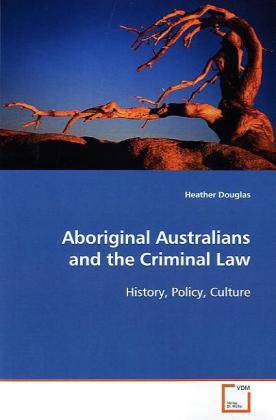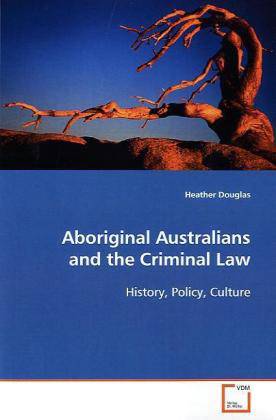
- Afhalen na 1 uur in een winkel met voorraad
- Gratis thuislevering in België vanaf € 30
- Ruim aanbod met 7 miljoen producten
- Afhalen na 1 uur in een winkel met voorraad
- Gratis thuislevering in België vanaf € 30
- Ruim aanbod met 7 miljoen producten
Zoeken
Aboriginal Australians and the Criminal Law
History, Policy, Culture.
Heather Douglas
Paperback | Engels
€ 77,95
+ 155 punten
Omschrijving
This book explores the relationship between the 1950s
policy of
assimilation and the development of criminal justice
approaches to
Australian Aboriginal people. Several areas of
criminal justice are
examined: the provocation defence, the recognition of
customary
law, sentencing and alcohol regulation. These areas
have been
particularly relevant to confrontations between
Aboriginal people
and the criminal justice system. This book argues
that, in some
areas, criminal justice principles developed in the
1950s in response
to the policy of assimilation continue to influence
the interaction
between Aboriginal people and the criminal law.
However, it also
contends that more recently criminal law has
sometimes aimed
to restore and repair Aboriginal people to their own
communities.
This later approach may open up a space for
Aboriginal people to
become more involved in the criminal justice process
and, from this
involvement, a form of weak legal pluralism may be
emerging. The
analysis provides new insights about approaches to
criminal justice
that may be helpful to lawyers, policy makers and
historians
working in Aboriginal criminal justice.
policy of
assimilation and the development of criminal justice
approaches to
Australian Aboriginal people. Several areas of
criminal justice are
examined: the provocation defence, the recognition of
customary
law, sentencing and alcohol regulation. These areas
have been
particularly relevant to confrontations between
Aboriginal people
and the criminal justice system. This book argues
that, in some
areas, criminal justice principles developed in the
1950s in response
to the policy of assimilation continue to influence
the interaction
between Aboriginal people and the criminal law.
However, it also
contends that more recently criminal law has
sometimes aimed
to restore and repair Aboriginal people to their own
communities.
This later approach may open up a space for
Aboriginal people to
become more involved in the criminal justice process
and, from this
involvement, a form of weak legal pluralism may be
emerging. The
analysis provides new insights about approaches to
criminal justice
that may be helpful to lawyers, policy makers and
historians
working in Aboriginal criminal justice.
Specificaties
Betrokkenen
- Auteur(s):
- Uitgeverij:
Inhoud
- Aantal bladzijden:
- 288
- Taal:
- Engels
Eigenschappen
- Productcode (EAN):
- 9783639126204
- Uitvoering:
- Paperback

Alleen bij Standaard Boekhandel
+ 155 punten op je klantenkaart van Standaard Boekhandel
Beoordelingen
We publiceren alleen reviews die voldoen aan de voorwaarden voor reviews. Bekijk onze voorwaarden voor reviews.











